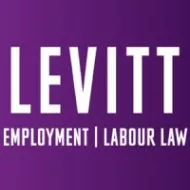Like so many legal questions, the answer is: 'it depends'
With Halloween falling on a weekday this year, it's likely the festivities will extend into the workplace. And although the secular celebration can be a fun morale-building opportunity, employers may be wondering whether it's a good idea to allow their employees to come to work costumed.
Like so many legal questions, the answer is: "it depends."
There are some settings in which dressing up for Halloween is seemingly appropriate. School staff working with young children might be encouraged to dress up along with their students. Bartenders and club staff might dress up to create appropriate and fun energy for their patrons. In any event, a company's expectations ought to be clearly communicated to employees in advance to avoid last-minute surprises or gaffes.
So, what are some considerations for employers in this decision?
Human rights risks
Employers should consider the possibility that workplace costumes could result in discrimination claims. Examples need not be so egregious as Trudeau's "Arabian Nights" scandal in 2001. Costumes that may have been acceptable in recent years could now give rise to employee complaints — think, nuns or priests (infringing religious rights) or geishas and pharaohs (examples of cultural appropriation).
With many political and world issues also top of mind, employees with an agenda may even seize the opportunity for political expression, wearing Make American Great Again (MAGA) hats, or a keffiyeh under the guise of a sanctioned "Halloween" costume. The employer has the right to insist on an apolitical workplace.
Finally, Halloween itself is associated with horror, death and the supernatural, which may offend employees of certain religious and ethnic cultural backgrounds. Employers should be ultra cautious where employees raise concerns about infringement of creed or ethnic origin (or any other protected ground) in the context of workplace celebrations.
Health and safety risks
Provincial and federal occupational health and safety legislation requires employers to take every reasonable precaution in the circumstances to protect their workers. Workplace costuming can pose a number of safety hazards. For example, where workers operate heavy and dangerous equipment, or where clear identification of personnel is critical for safety purposes (e.g., banks, uniformed security, etc.), the physical and security risks are clear and obvious.
Less obvious is the potential for workplace harassment. Employees may lack judgment in their outfitting choices, wearing questionable costumes that offend others or provoke unwelcome comments. Worse yet, other employees might assume that such informal and/or revealing attire is an invitation to make unwanted sexual advances in the workplace. In these ways, permitting employees to dress up at work can create an environment conducive to harassment, resulting in time consuming and costly investigations and potential discipline (including termination) of workers. We note that risks are even more pronounced where alcohol is served at company costume parties, whether on or off-site, which we wrote about here.
Dress code and business reputation
Lastly and importantly, employers are in the business of business. Productive and suitably dressed employees are critical to this pursuit, as our firm has previously discussed here. In fact, one of the authors of this column recently advised an employer on progressive discipline after one of its employees turned up to an important client-facing meeting dressed and behaving as a furry animal. A clear employee dress code and written code of conduct would have set clear expectations and bolstered the employer's position on termination.
Ultimately, employers should consider how their clientele will receive employees in Halloween costumes, along with any impact it may have on their professional reputation, before determining whether observing one day of festivities is truly worth the risks.
Bottom line? Unless an employer is clear that Halloween dress is acceptable and expected (and even then, sound judgment must be applied), employees ought to leave the costumes for after hours and get on with their workday.
The content of this article is intended to provide a general guide to the subject matter. Specialist advice should be sought about your specific circumstances.



